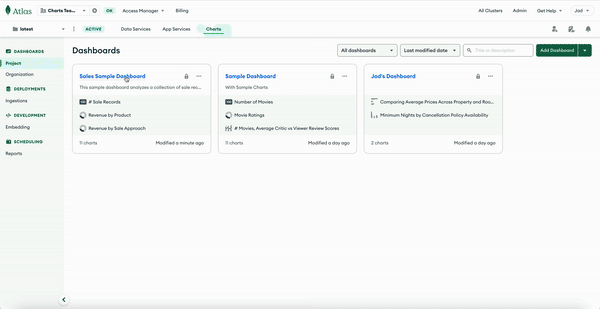Building Modern Applications Faster: New Capabilities at MongoDB.local NYC 2024
Today, we kicked off MongoDB.local NYC and unveiled new capabilities across our developer data platform. The updates and capabilities announced today pave the way for a new era of app modernization and will allow developers to unleash the full potential of transformative technology like AI.
Here’s an overview of our announcements, from a comprehensive update to MongoDB to AI-powered intelligent developer experiences:
Modern applications need a modern database
Cutting-edge modern applications must deliver both an exceptional experience and additional revenue. To meet these demands, developers require a database solution that offers optimal performance, scale, and operational resilience—while maintaining cost efficiency.
So today, we’re thrilled to announce the preview of MongoDB 8.0—the next evolution of MongoDB’s modern database.
MongoDB 8.0 is focused on delivering unparalleled performance, scalability, security, and operational resilience to support the creation of next-generation applications, including sophisticated AI-driven solutions. It provides optimal performance by dramatically increasing query performance, improving resilience during periods of heavy load, making scalability easier and more cost-effective, and making time series collections faster and more efficient.
Modernizing your next application with MongoDB is now easier
As application modernization projects gain momentum, migrations are becoming a pressing reality for development and database teams. Transitioning from legacy relational systems to modern databases like MongoDB is essential to keeping up with technological shifts like AI. However, modernization and migrations have many challenges, from converting complex schemas and translating large amounts of application code to keeping databases in sync during long modernization projects. Announced in June 2023, MongoDB Relational Migrator streamlines the migration process by automating tasks like schema design, data migrations, and application code generation.
Maintaining data synchronization is paramount in long-running modernization projects—where legacy relational databases must coexist with MongoDB until the project is complete. Today, we are pleased to announce that MongoDB Relational Migrator is now integrated with Confluent Cloud to support long-running change data capture (CDC) sync jobs. These jobs ensure operational resilience and observability, addressing the complexities of phased transitions without the added burden of managing Apache Kafka independently.

Furthermore, migrating from legacy relational databases often involves significant effort in rewriting SQL queries, stored procedures, and triggers, which has traditionally been time-consuming and difficult. Now available in public preview, an AI-powered SQL Query Converter Tool has been introduced to MongoDB Relational Migrator that automates the process of converting existing SQL queries, stored procedures, and triggers to work with MongoDB in languages like JavaScript, Java, or C#. This streamlined approach—paired with MongoDB professional services—enables a simplified migration process that can scale effectively.
Helping developers build faster with confidence on MongoDB
We recognize the vital role that developers play in the success of every project, which is why we’re dedicated to making their MongoDB experience as seamless as possible. Frameworks are a great way for developers to boost productivity, improve code consistency and quality, and ultimately deliver code faster. For the C# developer community, we are pleased to announce that the MongoDB Provider for Entity Framework Core (EF Core) is now generally available. This allows C# developers building with EF Core to unlock the full power of MongoDB's developer data platform—while still using the EF Core APIs and design patterns they already know and love.
And, recognizing the needs of the PHP community, we’re also proud to introduce the Laravel Aggregation Builder. This feature simplifies the process of building complex aggregation queries within Laravel, the most popular framework among PHP developers. By enhancing the integration of MongoDB with Laravel, we aim to boost productivity and ease the complexity of query operations, ensuring PHP developers can also enjoy an optimized development experience with MongoDB.
Generating queries and visualizations with AI
Since its initial release in 2015, MongoDB Compass has helped developers quickly build and debug queries and aggregations for their application code. Today, MongoDB Compass introduces an AI-powered, natural language query experience, making it even easier for developers to use MongoDB’s powerful Query API. Now generally available, this feature lets developers use natural language to generate executable MongoDB Query API syntax for everything from simple queries to sophisticated aggregations through an intelligent and guided experience. For example, a developer can input "Filter vacation rentals by location, group the remaining documents by number of bedrooms, and calculate the average nightly rental price," MongoDB Compass will suggest code to execute the stages of the aggregation pipeline.
Data visualizations are a powerful way of understanding application data, and embedding charts into user-facing applications further enhances their utility and appeal to developers. However, creating visualizations is often hampered by the need for in-depth knowledge of the dataset and proficiency in using business intelligence tools—skills that many developers may not have. Now available in public preview, we introduced an easy-to-use visualization tool with generative AI capabilities in MongoDB Atlas Charts. Using natural language prompts, developers can easily render charts and build dashboards, making visualizing data and enriching their apps simple and fast. For example, developers can input ‘Show me the list of movies released in the last year sorted by genre,’ and MongoDB Atlas Charts will gather data and quickly generate the requested visualization.

Today’s announcements underscore MongoDB’s commitment to helping developers innovate quickly and easily. For more about the MongoDB.local NYC 2024 updates, check out the product announcements page on our website.